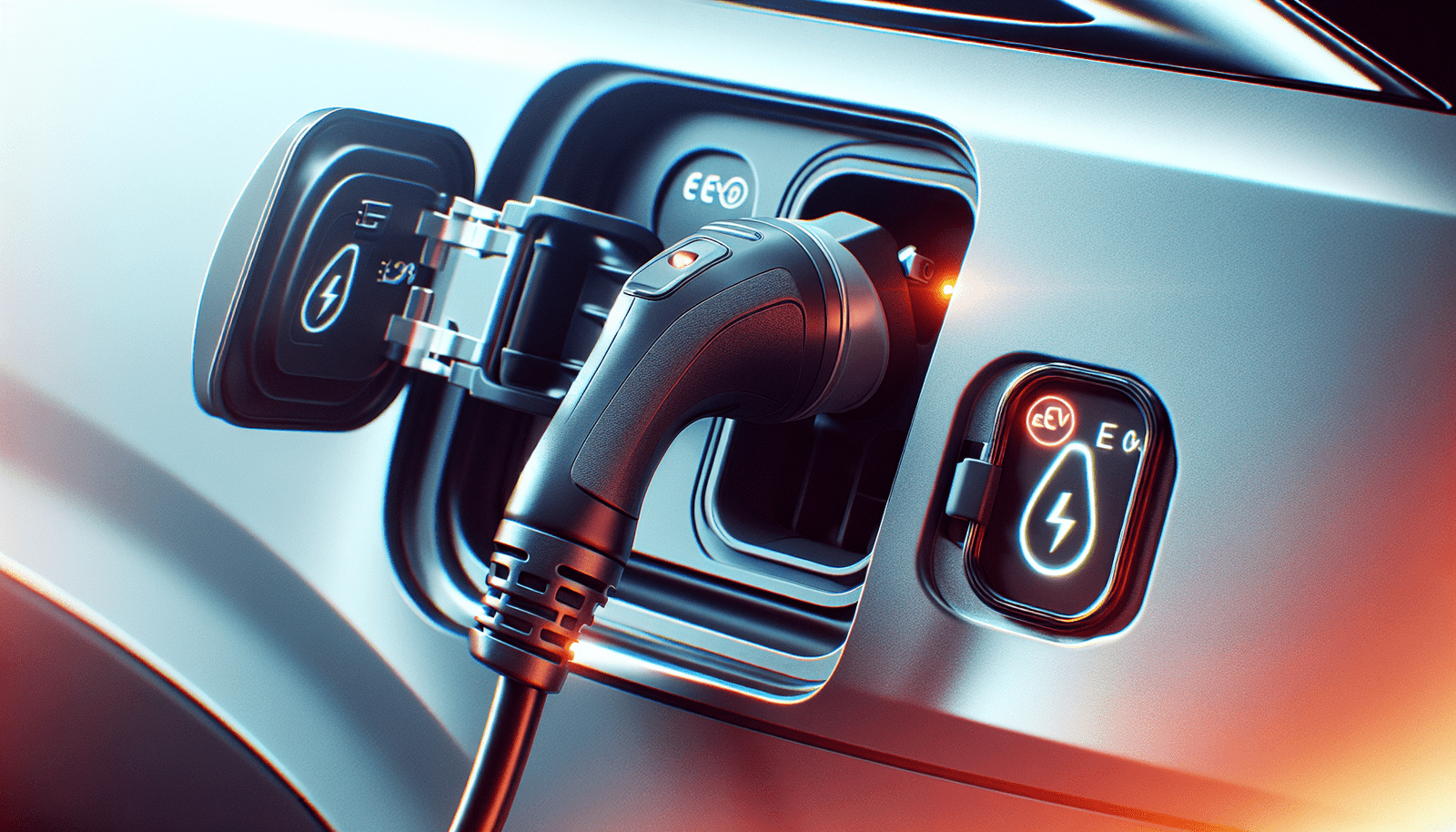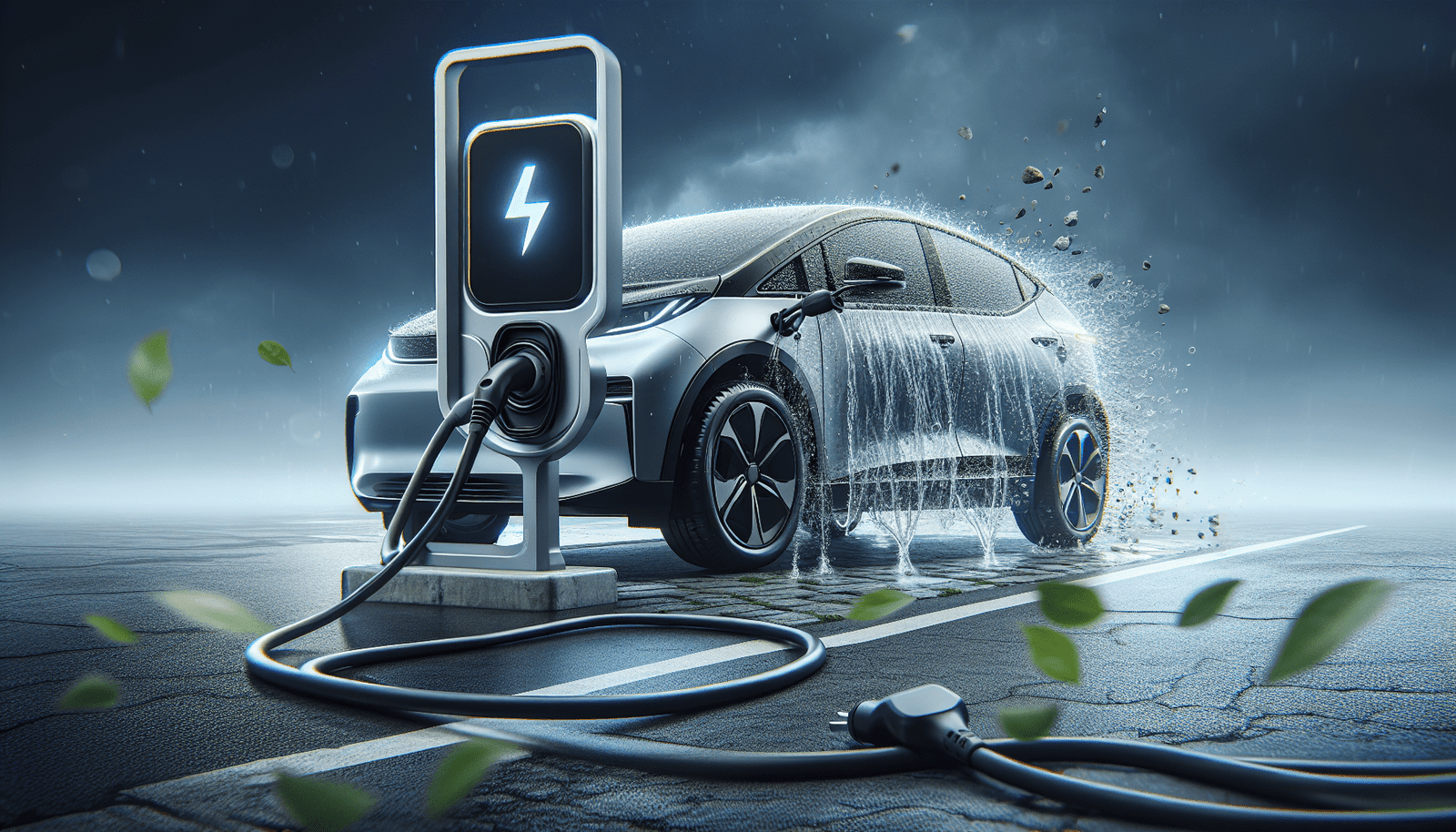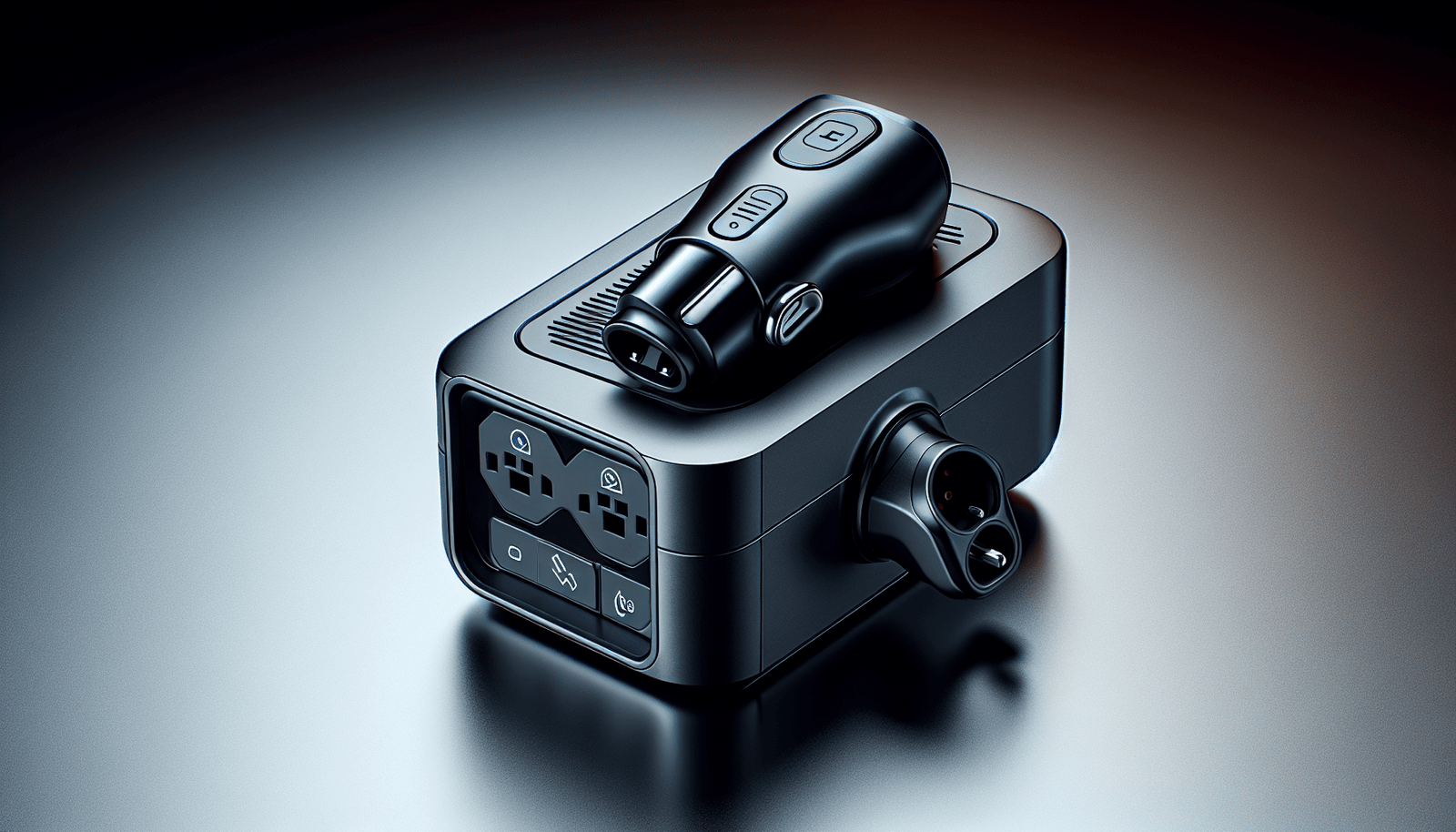Are you an avid electric vehicle user or someone in search of EV charger product reviews? If so, you’ve come to the right place! In this article, we will be addressing frequently asked questions about EV charger compatibility checks. Our aim is to provide you with a friendly and approachable tone while offering clear and concise answers to your queries. Whether you’re curious about compatibility between chargers and your specific electric vehicle model or simply seeking general information, we’ve got you covered. So sit back, relax, and let’s delve into the world of EV charger compatibility checks together!
Understanding EV Chargers
Electric vehicles (EVs) are becoming increasingly popular due to their eco-friendly nature and cost-effectiveness in the long run. However, to ensure a seamless charging experience, it is crucial to understand the basics of EV chargers and their role in the charging infrastructure.
Basics of EV Chargers
EV chargers, also known as Electric Vehicle Supply Equipment (EVSE), are devices that supply electric energy to recharge the battery of an electric vehicle. They come in various types and power levels to accommodate different charging needs. EV chargers are typically installed in residential, commercial, and public locations to provide convenient charging options for EV owners.
The Role of EV Chargers in Charging Infrastructure
EV chargers play a vital role in the overall charging infrastructure by providing a network of charging points for EV users. This infrastructure is crucial for the widespread adoption of electric vehicles, as it ensures that there are sufficient charging options available to meet the growing demand. EV chargers, along with other charging infrastructure components, such as charging stations and grids, help create a comprehensive charging ecosystem for EV owners.
Types of EV Chargers
There are three main types of EV chargers: Level 1 chargers, Level 2 chargers, and DC Fast chargers. Each type offers different charging speeds and power levels to suit various charging requirements.
Level 1 Chargers
Level 1 chargers are the most basic type of EV chargers and typically come bundled with electric vehicles upon purchase. They are designed to connect to a standard household electrical outlet (120 volts) and provide a charging rate of around 2-5 miles of range per hour. Level 1 chargers are convenient for overnight charging at home but may not be sufficient for users with higher daily driving needs.
Level 2 Chargers
Level 2 chargers are more powerful than Level 1 chargers and require a dedicated 240-volt electrical circuit for installation. They offer a faster charging rate of around 10-30 miles of range per hour, depending on the vehicle and charger capabilities. Level 2 chargers are commonly found in homes, workplaces, and public charging stations, providing a convenient option for EV owners who need to charge their vehicles more quickly.
DC Fast Chargers
DC Fast chargers, also known as Level 3 chargers, are the fastest charging option currently available. They use direct current (DC) instead of alternating current (AC) to charge the vehicle battery directly, bypassing the vehicle’s onboard charger. DC Fast chargers can provide a significant amount of range in a short period, typically offering around 60-80 miles of range in just 20 minutes of charging. These chargers are commonly found along highways and major travel routes, enabling long-distance travel for EV owners.
EV Charger Compatibility
When considering purchasing or using an EV charger, compatibility is a crucial factor to ensure efficient and safe charging. Conducting compatibility checks before connecting your electric vehicle to a charger can help prevent any potential issues or damage to the vehicle’s battery and charger.
Importance of Compatibility Checks
Compatibility checks are essential to ensure that the EV charger and the electric vehicle are compatible in terms of power requirements, connector types, and charging standards. Using an incompatible charger can result in inefficient charging, slower charging speeds, or even damage to the battery or charger. Therefore, it is vital to verify compatibility before proceeding with the charging process.
Factors Influencing Charger Compatibility
Several factors can influence the compatibility between an EV charger and an electric vehicle. Some of the key factors to consider include:
-
Charger Power Output: The power output of the charger should match or exceed the power requirements of the EV. Using a charger with a lower power output may result in slower charging times or inability to charge the vehicle adequately.
-
Connector Type: Different electric vehicles use different connector types for charging. It is crucial to ensure that the charger’s connector is compatible with the vehicle’s charging port. Incompatible connectors may require adapters or make charging impossible.
-
Charging Standards: Electric vehicles may adhere to different charging standards, such as CHAdeMO or CCS. It is important to ensure that the charger supports the same standards as the vehicle to facilitate fast and efficient charging.
Conducting Compatibility Checks
Before connecting your electric vehicle to an EV charger, it is important to conduct compatibility checks to ensure a seamless charging experience. Here are the steps to follow:
1. Checking the EV Model
The first step is to identify the make and model of your electric vehicle. Every EV has specific charging requirements and compatibility standards, which vary depending on the manufacturer. Refer to the vehicle’s manual or contact the manufacturer to gather information about its charging specifications.
2. Understanding the EV’s Power Requirements
Determine the power requirements of your electric vehicle in terms of voltage and current. This information is usually available in the vehicle’s manual or can be obtained from the manufacturer. Ensure that the EV charger you plan to use can meet or exceed these power requirements for optimal charging performance.
3. Considering the Type of EV Charger Connector
Check the connector type used by your electric vehicle for charging. Common connector types include J1772, CCS (Combined Charging System), CHAdeMO, and Tesla’s proprietary connector. Ensure that the EV charger you intend to use has a compatible connector or can be adapted to the vehicle’s charging port using the appropriate adapter.
Charger Connectors and Their Compatibility
Charger connectors play a crucial role in establishing a connection between the EV charger and the electric vehicle. Understanding the different types of connectors and their compatibility is essential for successful charging.
The Role of Charger Connectors
Charger connectors serve as the interface between the EV charger and the electric vehicle’s charging port. They allow the transfer of electric energy from the charger to the vehicle’s battery, enabling the charging process. Charger connectors are designed to be reliable, durable, and capable of handling the power and communication requirements during charging.
Common Types of Connectors
There are several common types of charger connectors used in electric vehicles. Here are some of the most prevalent types:
-
J1772: This connector is the standard for Level 1 and Level 2 chargers in North America. It has a distinct plug design with five pins and is compatible with most electric vehicles.
-
CCS (Combined Charging System): The CCS connector combines the traditional J1772 connector with two additional DC power pins. It supports both AC and DC charging and is commonly used in fast charging stations.
-
CHAdeMO: The CHAdeMO connector is mainly used by electric vehicles from Japanese manufacturers, such as Nissan and Mitsubishi. It supports high-power DC charging and is compatible with CHAdeMO fast chargers.
-
Tesla Supercharger: Tesla vehicles use a proprietary high-power charging connector exclusive to the Tesla Supercharger network. Adapters are available to connect non-Tesla vehicles to Tesla Superchargers.
Understanding Compatibility Issues with Connectors
Compatibility issues can arise when the EV charger’s connector does not match the electric vehicle’s charging port. This can result in the inability to establish a secure connection or initiate the charging process. To avoid compatibility issues, always ensure that the charger’s connector and the electric vehicle’s charging port are compatible. In some cases, adapters can be used to bridge the gap between different connector types, enabling charging compatibility.
Possible Compatibility Issues
While EV charger compatibility can generally be achieved through proper research and selection, there are a few potential compatibility issues that may arise.
Mismatch in Power Requirements
Using an EV charger with a lower power output than the electric vehicle’s requirements can result in slower charging times or inadequate charging. Conversely, using a charger with a higher power output than necessary may not provide any significant advantage and can increase costs unnecessarily. It is important to ensure that the EV charger’s power output matches or exceeds the vehicle’s requirements for optimal charging performance.
Incorrect Charger Connectors
If the EV charger’s connector does not match the electric vehicle’s charging port, a secure and reliable connection cannot be established, preventing effective charging. Before connecting the vehicle to the charger, always verify that the connector types are compatible or use the appropriate adapters if necessary.
Incompatibility Due to the Charging Infrastructure
Some compatibility issues may arise due to incompatibilities within the charging infrastructure itself. This can occur when specific charging stations or networks use proprietary connectors or adhere to different charging standards. In such cases, it is important to choose an EV charger that is compatible with the existing infrastructure or explore alternative charging options.
Solving Compatibility Issues
In the event of compatibility issues, there are several solutions that can help overcome the challenges and facilitate successful charging.
Using Adaptors
Adaptors can be used to bridge the gap between different connector types and enable compatibility between the EV charger and electric vehicle. However, it is important to ensure that the adapter is of high quality, properly certified, and approved by the relevant regulatory bodies. Using substandard or uncertified adapters can pose safety risks and may damage the EV charger or the vehicle.
Modifying the Charging Infrastructure
In some cases, modifying the charging infrastructure may be necessary to achieve compatibility. This could involve replacing connectors, upgrading charging stations, or integrating additional charging options. Modifying the charging infrastructure requires careful planning, expertise, and adherence to applicable regulations and standards.
Electing for a Compatible Charger Model
If compatibility issues cannot be resolved using adaptors or infrastructure modifications, it may be necessary to consider purchasing a new charger model that is compatible with the electric vehicle. Researching and investing in a compatible charger ensures a seamless charging experience and prevents any potential damage or inefficiencies.
Cost Implications of Compatibility Checks
While conducting compatibility checks may involve some additional effort and research, the cost implications can be significant. Timely compatibility checks can save money in the long run and prevent potential issues that may require costly rectification.
Cost Benefits of Timely Compatibility Checks
By verifying compatibility before connecting an electric vehicle to an EV charger, EV owners can prevent damage to the vehicle’s battery or the charger itself. Repairing or replacing damaged equipment can be expensive and may result in downtime for the vehicle. Timely compatibility checks ensure that the charging process is efficient and optimized, reducing charging times and minimizing associated electricity costs.
The Expense of Rectifying Compatibility Issues
If compatibility issues are discovered after connecting the electric vehicle to an incompatible charger, rectifying the issue can be costly. This may involve purchasing adapters, modifying the charging infrastructure, or replacing the charger altogether. Avoiding compatibility issues through proper research and compatibility checks upfront can save significant expenses in the long run.
FAQs on EV Charger Compatibility
To provide further clarity on EV charger compatibility, here are answers to some frequently asked questions:
-
Q: How do I know if a specific charger is compatible with my electric vehicle? A: To determine compatibility, check the charger’s power output, connector type, and charging standards. Refer to your vehicle’s manual or contact the manufacturer for specific compatibility information.
-
Q: Can I use an adapter to connect my electric vehicle to a charger with a different connector? A: Adapters can be used to bridge the gap between different connector types. However, ensure that the adapter is of high quality, certified, and approved by relevant regulatory bodies for safe and reliable charging.
-
Q: What if the charging station I want to use doesn’t have a compatible connector for my vehicle? A: In such cases, you can either look for alternative charging stations with compatible connectors or use adapters to enable compatibility. It is important to plan your charging options in advance and ensure compatibility for a hassle-free charging experience.
-
Q: Can I modify the charging infrastructure at home to accommodate a compatible charger? A: Modifying the charging infrastructure at home may be possible, but it requires expertise and adherence to applicable regulations. Consult with a professional electrician or installer to assess the feasibility and safety of modifying your home charging setup.
-
Q: How can I shop for compatible EV chargers online? A: When shopping for EV chargers online, look for detailed product descriptions that include compatibility information. Read customer reviews to gather insights on compatibility and quality. Choose reputable online stores that offer warranty and after-sales service to ensure a satisfactory purchase experience.
For a hassle-free shopping experience, visit our online store today and explore a wide range of compatible EV chargers suitable for your electric vehicle.
Purchasing Compatible EV Chargers
Before purchasing an EV charger, conducting compatibility checks is crucial to ensure a seamless charging experience. Here are some considerations when selecting and purchasing a compatible EV charger.
Pre-Purchase Compatibility Checks
Before making a purchase, thoroughly research the charger’s compatibility with your specific electric vehicle. Check the power output, connector type, and charging standards supported by the charger. Ensure that the charger meets or exceeds your EV’s power requirements and can establish a secure connection with your vehicle’s charging port.
Choosing an Online Store for Purchase
When shopping for EV chargers online, choose reputable online stores that specialize in electric vehicle accessories and have a track record of customer satisfaction. Look for stores that provide detailed product descriptions, including compatibility information, and offer a wide selection of compatible chargers from trusted manufacturers.
Importance of Product Reviews, Warranty, and After-Sales Service
While browsing online stores, take advantage of customer reviews to gather insights and feedback on the compatibility and quality of the EV chargers you are considering. Reviews can provide valuable information about real-world experiences with the products.
Additionally, consider the warranty and after-sales service offered by the online store and the charger manufacturer. A warranty ensures that you are protected against any manufacturing defects or performance issues, while reliable after-sales service ensures that your queries and concerns are addressed promptly.
By following these guidelines and conducting thorough compatibility checks, you can confidently purchase an EV charger that is compatible with your electric vehicle, providing a reliable and efficient charging solution.
In conclusion, understanding EV chargers and conducting compatibility checks are essential for a seamless, efficient, and safe charging experience for electric vehicle owners. By familiarizing yourself with the different types of chargers, compatibility factors, and potential issues, you can make informed decisions when selecting and using an EV charger. Remember to prioritize compatibility, check connector types, and verify power requirements to avoid any complications. By adhering to these guidelines, you can enjoy the benefits of electric vehicle ownership with peace of mind. Happy charging!




